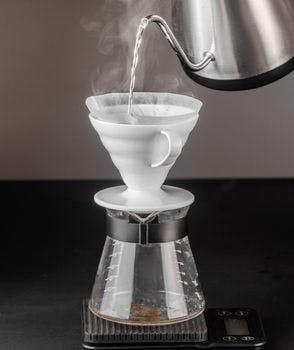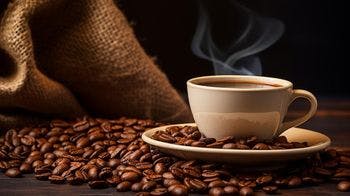
No-Bypass Coffee Brewing Methods - Explained!

Bypass is that sneaky water that escapes the ground coffee and passes through the filter without having much contact with the coffee beans.
And that’s why your coffee may taste weak and bitter.
If you want to avoid this problem, you will need to brew coffee using zero-bypass coffee brewers.
In this article, I will share with you everything about no bypass.
Plus, you will also learn about the zero bypass brewers, their pros, and the limitations that you might come across.
So let's get started and explore how you can achieve a rich, bolder, and smoother cup.
What is a no-bypass coffee brewing method?
To get rid of the weak bitter brews, no bypass was figured out as a solution. It is a technique used for brewing where 100% saturation is the aim.
In this no bypass it is ensured that every water droplet comes in contact with the grounds and extracts the full flavors of the beans.
List of Zero-bypass coffee brewers
1) NextLevel brewer
The NextLevel Brewer is one of the best among zero-bypass brewers. It has a wide diameter and uses a circular paper filter in shape.
It is made of a food-safe thermoplastic elastomer (TPE) base and a Tritan plastic brewing cylinder.
The LVL-10 model comes with a hexagonal-shaped filter holder, while the Pulsar model has a valve that is used to stop and modulate the flow of liquid out of the brewer.
2) Tricolate brewer
The Tricolate Brewer is a cylindrical zero-bypass brewer that was introduced in Australia in 2018.
It has impenetrable sides and a filtered bottom exit path just below the coffee. This makes it impossible for water to easily bypass the coffee.
3) OREA V3 coffee dripper
The OREA V3 Coffee Dripper has a cone-shaped design which is somewhat similar to the V60, but it has no ribs or spirals inside the walls.
The paper filter is completely closed to the walls of the brewer. It makes sure that there is uniform water flow through the coffee bed which makes it challenging for bypass water to escape.
4) Hario Mugen
The Hario Mugen is a pour-over coffee maker that helps simplify the brewing process and provides a great cup of coffee with minimal effort.
It has a unique design, it is a flat and slim holder, and it is available in white ceramic as well as clear and dark-tinted polycarbonate resins.
The Mugen utilizes V60 filter papers and features star-shaped grooves instead of the V60's spiral ribs. It is compatible with 02 size V60 filters and is suitable for brewing a few cups of coffee.
Benefits of zero-bypassing in coffee brewing
1) Better flavor extraction
These methods make sure that each coffee ground is fully soaked in water while brewing.
It helps in consistent and complete flavor extraction, resulting in a richer and more flavorful cup of coffee.
2) More consistent brewing
With zero-bypass brewing, there is very little difference in the extraction process, resulting in greater consistency in the taste and overall improved coffee quality.
It is best for commercial settings where uniformity is required.
3) Reduced sediments
In contrast to bypassing, these methods help reduce the sediments in the final cup of coffee. It results in a smoother and cleaner brew.
4) Control over brewing parameters
With Zero-bypass brewing you can control brewing variables such as water temperature, brew time, and coffee-to-water ratio.
It aids baristas and homebrewers to refine their brewing process and brew coffee with the desired flavor profile.
Cons
1) Might result in over-extraction
With zero bypassing, there's a risk of over-extraction, especially if the brewing parameters are overlooked. It might make your brew taste bitter and unpleasant.
2) Longer brew time
Some zero-bypass brewing methods, such as immersion brewing, may need longer brew times as compared to methods that let beans bypass.
It is not feasible for those desiring a quick cup of coffee, especially at busy intervals or commercial gatherings.
3) Less flexibility
Zero-bypass brewers may not provide you with the same level of control over dilution ratios as traditional brewing methods, which is beneficial in certain situations or commercial settings.
4) Comparatively less practical for everyday use
These methods require more brewing time which makes them less suitable for everyday coffee routines. Plus it needs special equipment which may not be possible in certain settings.
Summing It Up
Zero-bypass coffee brewing methods provide a solution for weak and bitter brews by making sure that there is 100% saturation and full flavor extraction from the beans.
The curated list of zero-bypass coffee brewers includes the Nextlevel brewer, Tricolate Brewer, OREA V3 coffee dripper, and Hario mugen.
Benefits of such brewing include better flavor extraction, more consistent brewing, reduced sediments, and control over brewing parameters.
However, there are also some drawbacks such as the risk of over-extraction, longer brew times, less flexibility, higher equipment costs, and less practicality for everyday use.
Despite these drawbacks, zero-bypass coffee brewing methods provide an unusual approach to brewing coffee that offers richer and more flavorful cups for those willing to invest the time and resources.

I am a barista by profession hailing from NC. My journey began in my late teens when I started working as a barista in a local coffee shop. My passion for coffee quickly became evident as I immersed myself in the art of espresso extraction, latte art ...



